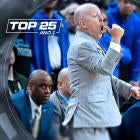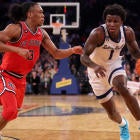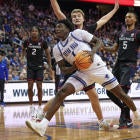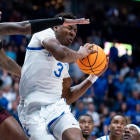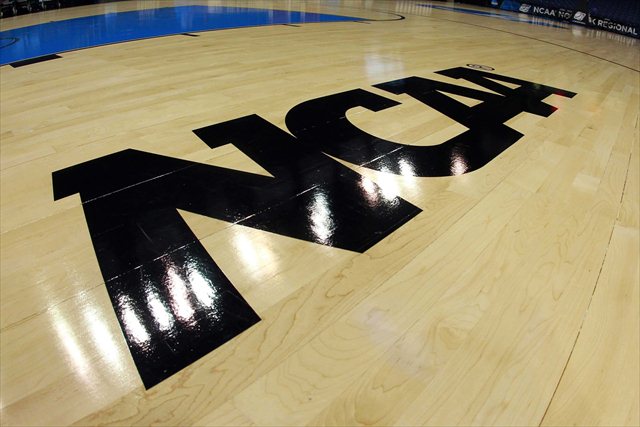
If you only saw the title of my post last week, you may be surprised that I'm now here to tell you that you have a chance to win the “Billion Dollar Challenge.” But just to be clear, I am still confident that you are not going to win a billion dollars. There is maybe a 1 in 10,000 chance that anyone does that (we can go through that calculation in a future column).
But you could get your hands on $100,000 just by picking one of the top 20 brackets entered into the competition. (There have been some indications that this money is to be used towards buying, refinancing or remodeling a home, although the official contest site makes no mention of this -- but hey, who doesn’t want a new house?) In this case, somebody will win the money, and it might as well be you. So how do you give yourself the best shot at picking a bracket that will place in the top 20 out of potentially 10 million entries (or alternatively will help you win CBSSports.com's Bracket Challenge)?
Last week I analyzed a bracket that was built to maximize the chances of picking a “perfect bracket.” This bracket had approximately a 1 in 80 billion shot of coming out perfect last year. (Of course, it didn’t.)
So, shouldn’t you just shoot for perfect and hope that it gets you in the top 20? Well, this will be many folks’ strategy -- but it may surprise you to learn that it’s a totally misguided one. In fact, going for a “perfect bracket” is a really lousy idea when you are trying to beat millions of other people.
Why is that? The trying-for-perfect bracket predicts that the favorite would win each game, which, not surprisingly, leads to this bracket having a high expected score in any traditionally scored bracket challenge. (It would not have had the highest expected score for such a challenge last year, however.) Problem is, a lot of people know the favorites and will enter brackets very similar to an all-favorites bracket. In fact, if you use this strategy, there are likely to be several thousand other people who are picking an identical Sweet 16 to yours, if not a completely identical bracket. So while this bracket may be very good at getting you and lots of other folks into the top 10 percent of the Billion Dollar Challenge (or top 1 million out of 10 million), this bracket is not the one to pick to get you a top 20 spot.
The key to giving yourself the edge in a challenge like this is differentiating your bracket in just the right way for this particular contest. You want to be the only person who has your bracket and what’s more, you want to be one of the few people that have bet on a particular gambit, that, should it play out, will give you a very good chance of winning the challenge.
Determining exactly what that gambit is for any particular bracket competition is the tough part. It involves a rather complex math problem that probably isn’t most people’s idea of a good time -- which is why we built the BracketVoodoo optimization engine. BracketVoodoo’s engine simulates the entire tournament millions of times (both the actual outcome of the tournament as well as the complete brackets your opponents would fill out for any bracket competition), and determines the optimal bracket for you to enter for any such competition.
At this point, I don’t think that the Billion Dollar Challenge has announced how they will be scoring the brackets, but let’s assume they are going to use the same scoring as the CBS Bracket Challenge, which is to give you 1 point for each correct pick in the Round of 64, 2 points for each correct pick in the Round of 32, 4 for each correct pick in the Round of 16, 8 for each team you correctly pick to make the Final Four, 16 for each correct pick you make to get into the Championship game, and 32 if you correctly pick the National Champion.
We ran the engine with respect to a 10 million player competition using the 1-2-4-8-16-32 scoring rule above, to determine the best bracket for the Billion Dollar Challenge, 2013 version. You can see the full bracket on our blog, but here is our Final Four:
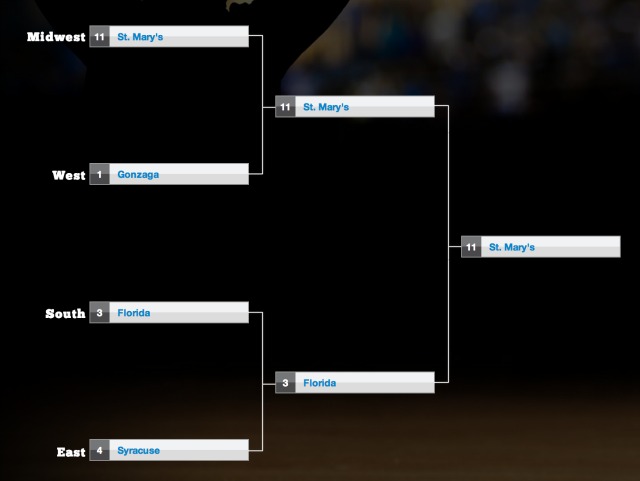
The key gambit of this bracket was picking St. Mary’s to win. According to our calculations, St. Mary’s had a one in 300 chance of winning the 2013 NCAA Tournament, but fewer than one in every 5,000 people picked them to win. (Part of the reason so few people picked St. Mary’s was because they had a play-in game, and teams that have to play their way into the field of 64 are historically under-picked -- even though VCU made it all the way to the Final Four out of this spot in 2011.)
All in all, we would have expected fewer than 2000 of the assumed 10 million participants to have picked St. Mary’s. And according to our calculations, if St. Mary’s had won the tourney, this bracket would have had about a 3.5% chance of ending up in the top 20. (In hindsight, some might argue that this was a bad calculation since St. Mary’s ended up getting bounced in the opening round, but that’s the sort of risk you have to take in massive pools like this.) The other minor gambits here were picking Florida to go to the Finals and Syracuse to the Final Four. Neither of these gambits was nearly as “out there” as the St. Mary’s pick, though, and in fact, one of them actually panned out.
So what were the odds you would have taken home $100,000 with this bracket last year -- about 1 in 9,000 or .011%. Doesn’t sound great, I know, but that is over 50 times more likely than the average entrant in this competition, and it’s an expected value of almost $11 (which you may or may not have to use towards buying a house). Almost makes it worth actually taking the time to enter the competition, doesn’t it?
----------------
Brad Null is the founder of bracketvoodoo.com, the world’s most advanced NCAA Tournament bracket analysis and optimization engine. Try it out now at bracketvoodoo.com












